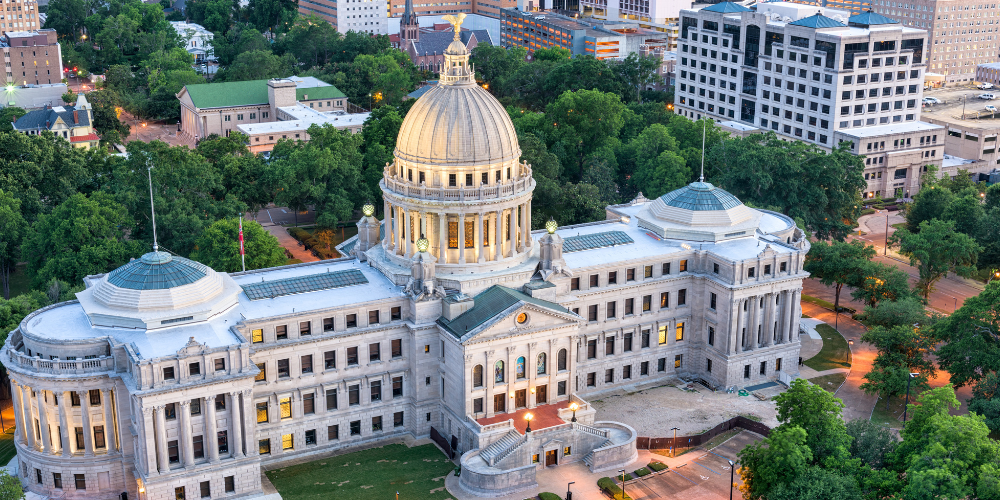
By Toren Ballard I Director of K-12 Policy
In terms of education policy, the 2023 legislative session will likely be remembered primarily for the legislation that didn’t pass rather than the legislation that did. This trend is headlined by the 11th hour effort to amend the MAEP school funding formula—part of a plan to “fully fund” MAEP by reducing the amount necessary to do so—but notable legislative failures did not end there: a major rewrite of the state’s undergraduate grant programs ultimately died in conference after initially passing unanimously in the Senate and overwhelmingly in the House. A bill to give assistant teachers a pay raise passed by over 100 votes in the House but also eventually died in conference.
A more optimistic framing of the 2023 legislative session posits that the stage is now set for some major education initiatives in 2024. Attempts to amend MAEP, financial aid, and teacher pay may have failed in 2023, but these efforts have also fueled ongoing conversations that will only heat up throughout this year’s election and into the new term. This forward-looking theme applies to successful legislation as well: the establishment of a pair of task forces—the Early Intervention Task Force and the Mississippi State and School Employees’ Life and Health Insurance Plan Task Force—suggests that early learning and the state health plan will also be hot topics of conversations going into next year’s legislative session.
This is not to say that Mississippians will not feel the impact of education legislation during 2023, though. Whether it’s additional funding for public schools (over $100M over the 2022 appropriation including the pay raise allocation), restrictions on school libraries, or the proliferation of firearms on school campuses, there were a number of bills passed this year whose effect will be felt in the coming months. Read to learn about notable successes (and failures) related to school finance, school safety, postsecondary education, and the educator pipeline.
In This Post
School Finance
As a result of the Mississippi Department of Education (MDE) appropriations bill, House Bill 1613 (signed into law), Mississippi public schools will receive an additional $117 million in education funding during the coming school year. The overall MDE budget comes to just under $3 billion, but this record sum proved to be somewhat anticlimactic due to a high-profile, but unsuccessful, effort to “fully fund” MAEP with an additional $200M ($181M over the legislative budget recommendation for FY23). Key to that effort had been House Bill 1369 (dead), which, as amended by the Senate, would have made technical changes to the MAEP formula to reduce the cost to fully fund MAEP by roughly $60 million. Likely due to some combination of budgetary, policy, and timeline concerns (the Senate introduced its proposal with only weeks left in the legislative session), the House ultimately balked at these changes, instead offering to spend an additional $100 million on education funding outside the MAEP formula.
Though not directly related to K-12 education spending, House Bill 817 (signed into law) will permanently raise the funding rate for early learning collaboratives (ELCs) to $2,500 per child for full-day programs and $1,250 per child for half-day programs. Through the appropriations process, the legislature has funded ELCs at this rate since 2020; however, this increased funding has not been guaranteed by law until now. Previously, ELCs were only guaranteed $2,150 per child for full-day programs and $1,075 per child for half-day programs.
School Safety
The legislature passed two controversial “school safety” bills in 2023, though the threats cited by lawmakers could not have been more different: school shooters and pornography. Senate Bill 2079 (signed into law) enacted the School Safety Guardian Act, which will allow participating school districts to secretly designate certain educators as “School Safety Guardians.” Guardians will be required to receive training, carry a concealed firearm at all times on school grounds, and respond with deadly force to any situation that could cause “serious bodily harm.” State law already permits school districts to authorize school employees to carry concealed weapons, but SB 2079 takes this concept one step further by waiving civil liabilities for guardians and allowing them to use their guardian status as a potential criminal defense—legal protections designed to encourage districts to participate in the program. In addition to the likely proliferation of deadly weapons in public schools, other concerns with the guardian program include the anonymity of guardians (their identities would not be subject to public records requests) as well as their authorization to use deadly force even in instances where there is not an active shooter.
House Bill 1315 (signed into law) was designed to protect from a separate threat: an alleged deluge of pornography readily available to students of all ages via library digital databases. To be clear, much of the evidence underpinning the alleged threat was either extremely vague or turned out to be dry research articles in academic journals with no pictures (“Implementing an LGBTQ Training for Teen Pregnancy Prevention Facilitators,” a 2018 peer-reviewed academic article, was cited more than once on the Senate floor). Nonetheless, the final version of HB 1315 prohibits public schools and public libraries from offering “digital or online resources or databases” if any of the resources available contain content that is deemed “obscene,” “inappropriate,” or “sexually oriented.” While it remains to be seen how the law will be interpreted or enforced, the legislation amounts to a de facto digital book ban for potentially large numbers of books, regardless of the age of the reader. We are particularly concerned about the statutory definition of “sexually oriented,” which may apply to any mention of sexual intercourse generally as well as any LGBTQ-related content.
Postsecondary Education
Mississippi was one conference report away from a massive reform to the state’s undergraduate grant programs this year: House Bill 771 (dead) would have transformed the Mississippi Tuition Assistance Grant (MTAG)—a rather ineffective residency-based grant exclusively available to students who are not Pell Grant-eligible—into “MTAG Works,” a need-based grant available to students with family incomes below the median, extending financial aid to an estimated 34,000 low-income Mississippi college students who are currently not eligible for any of the three existing programs. (A much less popular provision of HB 771 would have reduced awards for many recipients of the HELP grant, the state’s only existing need-based grant program). Despite receiving initial support from higher education officials, the politics of redistributing financial aid dollars from the current recipients of MTAG to their lower-income peers (as well as the need for additional appropriations) ultimately proved to be a bridge too far, and the bill died in conference.
One area in which legislators did successfully move the needle on higher education was providing funding for high school students to enroll in dual credit courses. Senate Bill 2487 (signed into law) created the Mississippi Dual Enrollment/Dual Credit Scholarship Program, which will subsidize 40% of the average community college credit hour tuition for students who are enrolled in and/or receiving credit from both a public high school and a two- or four-year college or university. This program will presumably encourage additional high schoolers to earn college credit prior to graduating high school and matriculating into an institution of higher education.
Educator Pipeline
A year after securing a $240 million investment for a massive teacher pay raise in 2022, we knew that matching this level of success in 2023 would be difficult. We are nonetheless disappointed in the legislature’s failure to produce any big wins for Mississippi teachers this year. Going into the session, Mississippi First advocated for three policy recommendations based on findings from the 2022 Mississippi Teacher Survey: a $2,000 stipend for teachers in critical shortage areas, expanding the Winter-Reed Teacher Loan Repayment Program, and reducing state health insurance premiums for teachers with families. We were pleased to see a total of five bills introduced during this session to achieve these goals—House Bill 730, Senate Bill 2585, House Bill 1180, House Bill 1184, and Senate Bill 2319—though, unfortunately, none were ultimately signed into law.
Senate Bill 2585, which would have expanded eligibility for the Winter-Reed Teacher Loan Repayment Program, progressed the farthest out of these bills, passing the Senate by a margin of 40 “yea” votes to 8 “nays” and the House by a margin of 112 to 6. The conference committee for SB 2585 was ultimately unable to produce a conference report (likely for unrelated political reasons), which killed the bill at this late stage. When lawmakers had the opportunity to vote on these bills, whether in conference or on the Senate or House floor, they demonstrated almost universal support for these initiatives, and none of the bills were voted down at any point. We believe this is an incredibly positive sign for legislative support for improving Mississippi’s educator pipeline, and we plan to advocate for similar legislation in 2024.

